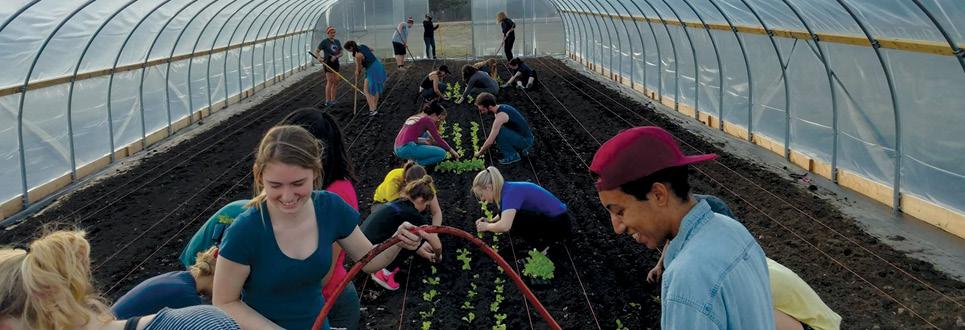Blog
Get the inside scoop about life at U-M and applying to Michigan from current student bloggers, Admissions staff, and guest faculty writers.

Get the inside scoop about life at U-M and applying to Michigan from current student bloggers, Admissions staff, and guest faculty writers.

Being involved with new scientific findings while learning at the same time is a great opportunity available to students at U-M. But how can we be involved in research at a time when many labs have restrictions due to COVID?

The University of Michigan is not only one of the top 20 universities in the world, but it is the #1 public research university, and among the biggest by both expenditure and volume of research, according to the National Science Foundation. I believe many Wolverines do not take advantage of this properly, nor do we consider the opportunity to be a part of research to be an extremely valuable asset, which it absolutely is.
Whether you’re thinking of grad school or just curious about being a part of the scientific process, I’d highly recommend everyone participate in research at least one term during their undergraduate years. Not only does it give you first-hand experience, it also allows you to appreciate the application of the knowledge we are taught so concisely in our classes.
Even during the COVID-19 pandemic, many labs across campus are continuing their activities with well-crafted schedules to match the reduced capacity regulations. Especially during these times, it can be tricky to be a part of a lab. Here are my recommendations for looking for and landing a research assistant position at a lab of your choosing.
Undergraduate Research Opportunity Program (UROP) offers first-year students and sophomores an introductory course in which you’ll get an opportunity to not only be a part of a lab doing research, but also to learn how to write resumes, make a scientific plan, and more. Many of these skills will come in handy at the end of the year poster fair where you’ll have an opportunity to present your findings in a public forum.
When I was a first-year student, A UROP alum recommended me to apply to UROP as a sophomore since many labs are looking for people with some basic lab experience and fundamental knowledge. As a sophomore, I was accepted to six of the seven positions I had applied to (a higher acceptance percentage compared to many of my first-year classmates) – all of which were looking for someone with a basic understanding of science fundamentals. The one downside of this program is that you might have to weed through some clerical jobs passing as research projects; however, as a former student of UROP, I’d highly recommend it to everyone

If you do not want to be bound to a full-year commitment like UROP, or are looking to do research at a different capacity – whether it is for a full year or for summer internships – you should definitely look into which labs are available in your department of interest and write to their PIs individually.
Make sure to read any recent papers they have published to get a better sense of what they’re working on as this will also give the PI you’re writing the impression that you are willing to put in effort. I’d also advise you to write to multiple PIs at once since the chance of getting a position is scarcer than usual, and you don’t want to waste any time waiting for a response. Additionally, you should definitely alert everyone you have written to if you get an offer so that they will not waste their time trying to accommodate you.
It might be tricky to figure out which labs are hiring at the moment, so to make your search a little easier, I recommend you check out the available job openings on the U-M Student Employment website. Many labs post the position for which they’re seeking students with detailed information about what skills they’re looking for. This will help you assess if a position is appropriate for you without having to do excessive research.

While many labs are not recruiting due to COVID-19 restrictions, a lesser known secret of the labs is their databases. Many labs, whether they are in the natural sciences or other areas, have extensive databases that have yet to be analyzed. If you know that a lab cannot recruit any in-person undergraduate researchers, you can ask them via email if they have any data they need analyzed. For this you’ll most likely need some statistics knowledge and at least a basic understanding of coding, but luckily U-M offers free courses for both (see next point for more details)!
If you cannot get a research position, do not fret! These are unprecedented times, and no one is going to blame you for the opportunities that are scarce because of this. If you cannot find a lab to work in, you can just work on yourself! U-M offers many free online courses in topics ranging from coding to statistics – all of which will come in handy for future research opportunities. Taking such classes now will help turn you into an appealing candidate for future research positions.

Lara Mutluay is a senior majoring in Cellular, Molecular and Developmental Biology (MCDB) and Ecology and Evolutionary Biology (EEB). In addition to her studies, she conducts research at Freddolino Lab in Biological Chemistry Department at the U-M Medical School. Lara is an international student from Turkey and is very passionate about climate change and how it especially affects marine ecosystems. She is currently creating her own travel blog on Instagram (@filterless.travels) where she aims to portray overly edited touristic places as they really are. In her free time, she can be found figure skating, scuba diving, reading or binge watching whatever new obsession of hers is on Netflix.